10 Serious Side Effects Of Soursops
Be careful, for this fruit can be extremely damaging when consumed in excess.
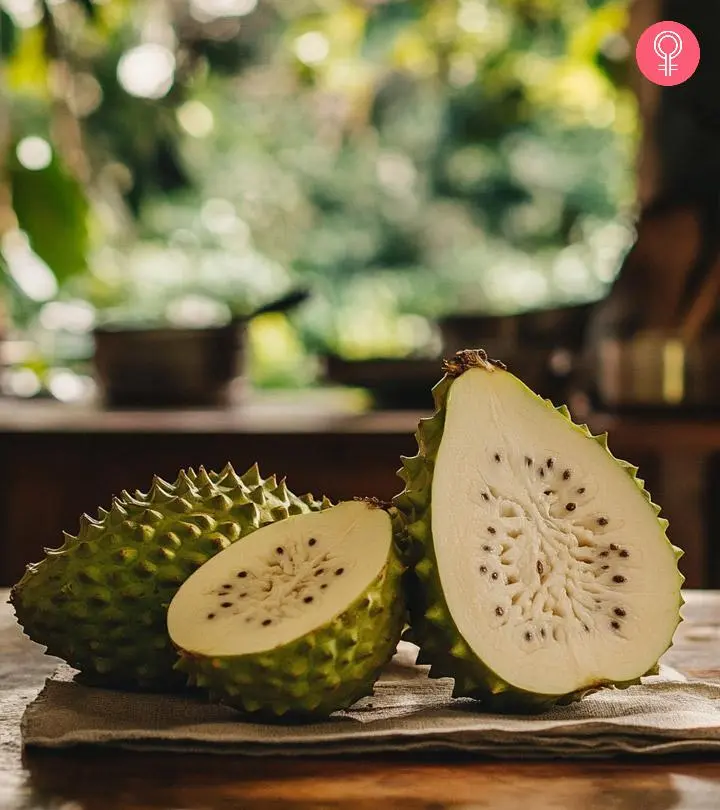
Image: Midjourney/ StyleCraze Design Team
Many of you may not know about the side effects of soursop, even though you may know about its usage and benefits. There are many herbs and plants in nature that can help you treat certain health conditions. However, you must be aware of their right dosage and proper use. For instance, the plants whose leaves are beneficial might have poisonous fruits or may cause allergic reactions, leading to anaphylaxis.

Similarly, when it comes to soursop, many of you may know it as graviola, which is beneficial in head lice treatment. But do you know which part of the tree to use for that and why it might be dangerous as well? Well, we have done all the research for you. Read on to learn about the side effects of soursop to utilize them in the right way. Scroll down!
 Know The Flip Side: Soursop
Know The Flip Side: SoursopShort-Term Effects
Nausea, vomiting, abdominal cramps, hypotension, and mouth irritation.
Long-Term Effects
Movement and kidney disorders, nerve damage, and Parkinson’s disease.
Drug Interactions
It may interfere with blood pressure and diabetes medications.
When To See A Doctor
See a doctor in case of dizziness, extreme fatigue, and abdominal pain.
In This Article
Nutritional Information Of Soursop
Soursop is generally high in fiber, calcium, potassium, and vitamin C (1). But it also contains antinutrients like phytates, tannins, and oxalates (2). These antinutrients can form complex bonds with minerals and lower the minerals’ bioavailability. While these antinutrients are present in small amounts, consuming soursop in excess can increase the risk of nutrient deficiencies and other side effects. Learn more about them in the next section.
Key Takeaways
- For toned and shaped calves, do exercises such as weighted calf raise, skater hops, stair climb, and jump ropes.
- Do calf stretches every day to strengthen the calves.
- Avoid doing exercises that put too much strain on calves such as high inline cardio, sprint and high knee exercises.
- Avoid consuming food with excessive fat and sugar content.
10 Side Effects Of Soursop

There are multiple benefits of soursop, but at the same time, it has many side effects, which form a part and parcel of soursop consumption. Some of the common side effects of soursop, which have come up during the research are discussed below in brief:
1. Low Blood Pressure Level

According to the experiments conducted on animals, it has been found that this plant can reduce the level of blood pressure in the body (3). This plant can also dilate the blood vessels (4). So, individuals with low blood pressure should avoid the consumption of soursop at all costs. In fact, those who are under medication for high blood pressure should consult their doctors before eating soursop. Like any other natural product, you should also consume it in controlled amounts. Overdoses can lead to vomiting, nausea, loss of appetite, diarrhea, abdominal pain, weakness, fatigue, dizziness, headache, or respiratory distress .However, more studies are warranted to support this claim.
 Did You Know?
Did You Know?2. Avoid Soursop With Coq10
Soursop is known for its anti-cancer properties (5). The fruit gets this property from its ability to reduce the supply of adenosine triphosphate to the cancer cells. Adenosine triphosphate, offers high metabolic energy to the cells in the body and nutritional supplements like Coenzyme Q10 is responsible for enhancing ATP (6). Due to these reasons, the effect of soursop may be neutralized by CoQ10. So, it is suggested to avoid consuming both these products together.
3. Movement Disorder
Studies say eating soursop may lead to the development of movement disorders (7).
4. Neurotoxicity
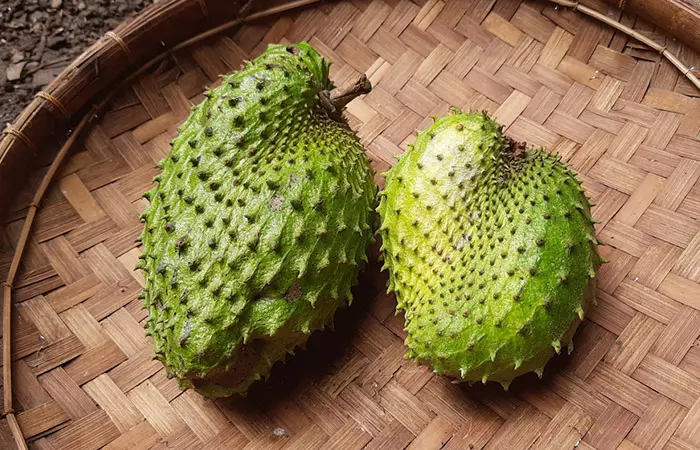
According to a number of researches, the tea made using the stems and leaves of this plant, can lead to neurotoxicity disorders (8).
5. Antidepressant

If you are undergoing treatment for depression, anxiety, or insomnia and are consuming medicines for the same, you should definitely avoid soursop as it can negate the benefits of these antidepressants (9).
6. Infections
Using soursop for an extended period of time may lead to the development of fungal and yeast infections in the body, which can cause fever, sweating or chills, and skin rash (10).
7. Parkinson’s Disease

A number of researchers have indicated that the chemical present in soursop is also present in human beings suffering from Parkinson’s disorder (11). Patients suffering from this neurological disorder should avoid eating soursop; else it may worsen the symptoms.
8. Affects The Cardiovascular System
Here comes one of the serious soursop side effects. A huge dosage of Graviola may affect the heart palpitations and cardiovascular system of the body (12). This fruit is known for its depressant effect. So, people suffering from heart problems should completely avoid the use of it.
9. Uterine Problems

Excessive consumption of soursop may stimulate uterine contractions. Pregnant ladies should avoid the use of it as it may lead to miscarriage or premature labor. However, limited data is available in this regard and more research is warranted to substantiate this claim.
10. Neurological Problems
Consumption of soursop may lead to the development of neurological disorders like seizures, memory loss, or hallucinations (13).
If you are planning to consume soursop in its raw form or as supplements available in the market, then you should talk to you doctor first. There are some benefits of eating this fruit as well as the supplements made using it. But, it is necessary to stay cautious of the side effects. This is especially true if you are suffering from any critical health issues or consuming high doses of certain medicines.
Stay safe and follow your doctor’s/nutritionist’s instructions to stay healthy!
 Did You Know?
Did You Know?Understanding how to safely consume soursop can help you enjoy its benefits while avoiding potential risks. Scroll down to know more.
How To Safely Consume Soursop
Here are a few tips to safely enjoy soursop:
- First, choose a ripe, green fruit. Then wash it thoroughly, and remove the seeds, as they are toxic.
- You should consume small servings of the fruit, preferably 1/2 to 1 cup per day, to avoid overexposure to the potentially dangerous chemical annonacin in soursop.
- Avoid using soursop leaves or extracts without first consulting a doctor because there is no proof that they are safe for everyone.
- Those who are nursing a baby, pregnant, or have neurological disorders like Parkinson’s should speak with a doctor before consuming soursops to avoid any adverse reaction.
Infographic: Soursop: Is It Safe?
As with most fruits with potential applications in the healthcare and pharmaceutical industries, soursop has been tested for its toxicity. These toxicology report results will help you manage your indulgence in this fruit. However, it is important to keep in mind that these values were determined for soursop extracts and not the entire fruit.
Check out the infographic below to learn more about the toxicity of soursop and how it can adversely affect your health. Illustration: StyleCraze Design Team

Soursop is a nutrient-dense fruit with delicious flavor and rich fiber content. It exhibits several medicinal properties that help treat many ailments. Soursop leaves have many benefits but overconsumption can lead to several health problems. They may reduce blood pressure levels, cause movement disorders, liver toxicity, and kidney toxicity, and lead to neurotoxicity problems and fungal and yeast infections in the body. In addition, they also may increase the risk of cardiovascular disease. Hence, consume them in moderation.
Do you know of any other side effect of soursop? Share with us in the comments section below.
Frequently Asked Questions
How much soursop is too much?
Eva De Angelis, Dietitian Nutritionist with a BS in Human Nutrition and Dietetics from Universidad ISalud (Argentina), says, “Soursops are large fruits. One single soursop can weigh up to 10 pounds! And even though they are rich in several micronutrients, antioxidants, and healthy phytochemicals, overeating them can be harmful. It can cause damage to the nerves and neuropathy, leading to symptoms similar to Parkinson’s disease. Plus, regular intake may also be toxic to the kidneys or liver.”
Does soursop make you sleepy?
According to Eva De Angelis, “It might help you sleep, but remember that overeating or drinking too much soursop leaf tea can have serious side effects. Soursop leaf tea can stimulate the release of serotonin, an essential hormone for mood stabilization, happiness, wellness, relaxation, and sleep. Some people also like putting leaves on their pillowcases to improve sleep. Yet, there’s not enough scientific evidence to prove the effectiveness of the soursop plant in improving sleep quality.”
Is it OK to eat soursop fruit at night?
Eva De Angelis, Dietitian Nutritionist, says, “As long as you eat a small amount, it’s ok. Since it is a large fruit, be aware that it can have a lot of natural sugars. They’re also rich in fiber, which can slow down sugar absorption. But still, one fruit can have up to 80 grams of sugar.”
Can soursop be taken daily?
No. The recommendation is to limit yourself to a half cup of soursop a few times a week.
Is soursop acidic or alkaline?
Soursop is an alkaline food.
Is soursop high in potassium?
Soursop contains 18% of the daily recommended value of potassium. Hence, it is a good source of potassium, which may help avoid muscle pain and joint pain (10), (11)
Are soursop seeds poisonous?
Soursop seeds have toxic compounds that can harm your health if consumed in high amounts (12).
Discover the health benefits of soursop (graviola) and learn about its potential side effects. Get the facts and make an informed decision about this superfood by watching the video below. Check it out now to know more.
References
Articles on StyleCraze are backed by verified information from peer-reviewed and academic research papers, reputed organizations, research institutions, and medical associations to ensure accuracy and relevance. Read our editorial policy to learn more.
- Soursop raw
https://fdc.nal.usda.gov/fdc-app.html#/food-details/167761/nutrients - Proximate Composition Antinutrient Content and Functional Properties of Soursop Flour as Influenced by Oven and Freeze Drying Methods
https://www.foodandnutritionjournal.org/volume2number2/proximate-composition-antinutrient-content-and-functional-properties-of-soursop-flour-as-influenced-by-oven-and-freeze-drying-methods/ - The effects of soursop supplementation on blood pressure serum uric acid and kidney function in a prehypertensive population in accordance with the 2017 ACC/AHA guideline
https://pubmed.ncbi.nlm.nih.gov/31462727/ - Nutritional and Therapeutic Potential of Soursop
https://onlinelibrary.wiley.com/doi/10.1155/2025/8828358 - Pharmacological Activities of Soursop (Annona muricata Lin.)
https://pmc.ncbi.nlm.nih.gov/articles/PMC8878098/ - Coenzyme Q10: Clinical Applications beyond Cardiovascular Diseases
https://pmc.ncbi.nlm.nih.gov/articles/PMC8156424/ - Is atypical parkinsonism in the Caribbean caused by the consumption of Annonacae?
https://pubmed.ncbi.nlm.nih.gov/17017523/ - Potential Neurotoxicity of Graviola (Annona muricata) Juice
https://www.sciencedirect.com/science/article/pii/B9780128166796000139 - Annona muricata: Is the natural therapy to most disease conditions including cancer growing in our backyard? A systematic review of its research history and future prospects
https://www.sciencedirect.com/science/article/pii/S1995764517306302 - Use of inductors in the control of Colletotrichum gloeosporioides and Rhizopus stolonifer isolated from soursop fruits: in vitro tests
https://www.ncbi.nlm.nih.gov/pmc/articles/PMC6049665/ - Toxicity of Annonaceae for dopaminergic neurons: potential role in atypical parkinsonism in Guadeloupe
https://pubmed.ncbi.nlm.nih.gov/11835443/ - Effect of Soursop (Annona muricata L.) Leaf Extract on Oxidative Stress Caused by Caffeine in Albino Rat Models
https://www.researchgate.net/publication/317122357_Effect_of_Soursop_Annona_muricata_L_Leaf_Extract_on_Oxidative_Stress_Caused_by_Caffeine_in_Albino_Rat_Models - Pharmacological Activities of Soursop (Annona muricata Lin.)
https://pmc.ncbi.nlm.nih.gov/articles/PMC8878098/ - Soursop, raw
https://fdc.nal.usda.gov/fdc-app.html#/food-details/167761/nutrients - A therapeutic role for potassium (K) to reduce pain and complications related to the cardiovascular system and bone in rheumatoid arthritis (RA): A clinical research perspective
https://www.rheumres.org/article_48075_27c3e2dc0b189fa9f9161febddf89541.pdf - Exploring the Leaves of Annona muricata L. as a Source of Potential Anti-inflammatory and Anticancer Agents
https://www.ncbi.nlm.nih.gov/pmc/articles/PMC6019487/
Read full bio of Dr. Pallavi Srivastava
- Eva De Angelis is a Dietitian Nutrionist from Argentina. She specializes in food and nutrition education, and healthy cooking. She has a Bachelor’s degree in Human Nutrition and Dietetics from ISalud University, a postgraduate certificate in Nutrition, Gastronomy, and Health, a culinary diploma, and an intermediate-level technical degree in Food Science.
 Eva De Angelis is a Dietitian Nutrionist from Argentina. She specializes in food and nutrition education, and healthy cooking. She has a Bachelor’s degree in Human Nutrition and Dietetics from ISalud University, a postgraduate certificate in Nutrition, Gastronomy, and Health, a culinary diploma, and an intermediate-level technical degree in Food Science.
Eva De Angelis is a Dietitian Nutrionist from Argentina. She specializes in food and nutrition education, and healthy cooking. She has a Bachelor’s degree in Human Nutrition and Dietetics from ISalud University, a postgraduate certificate in Nutrition, Gastronomy, and Health, a culinary diploma, and an intermediate-level technical degree in Food Science.
Read full bio of Tanya Choudhary
Read full bio of Ravi Teja Tadimalla
Read full bio of Moksha Gandhi















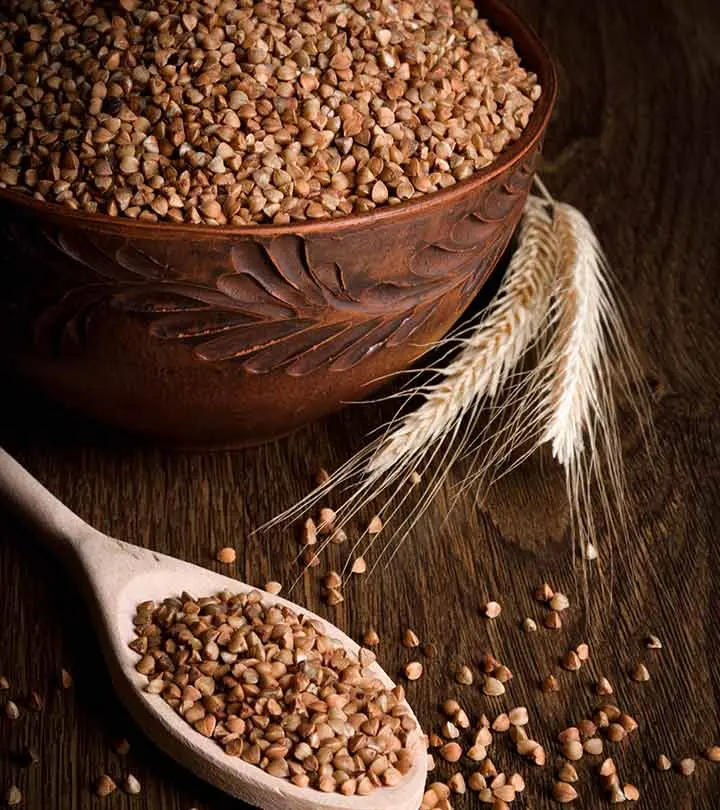





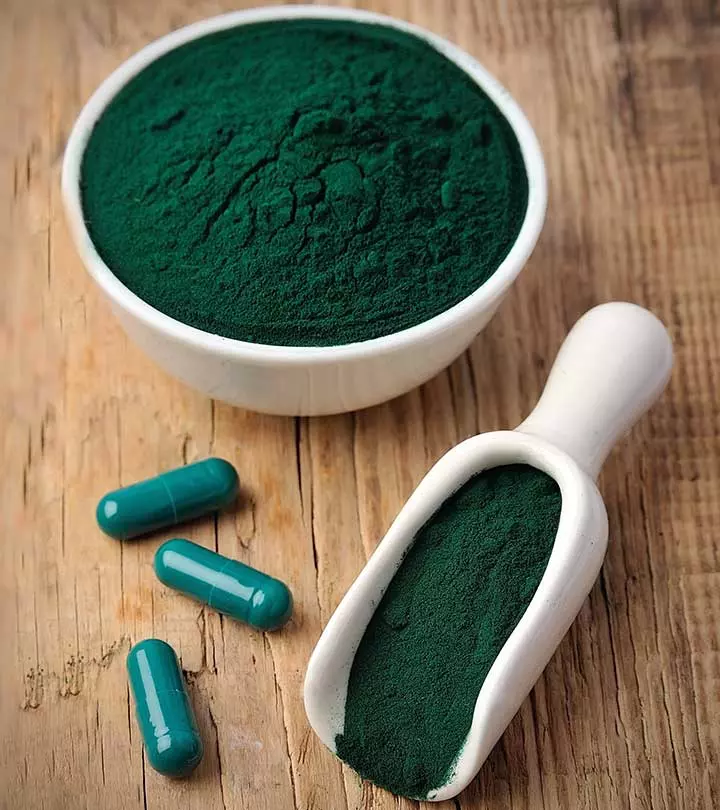



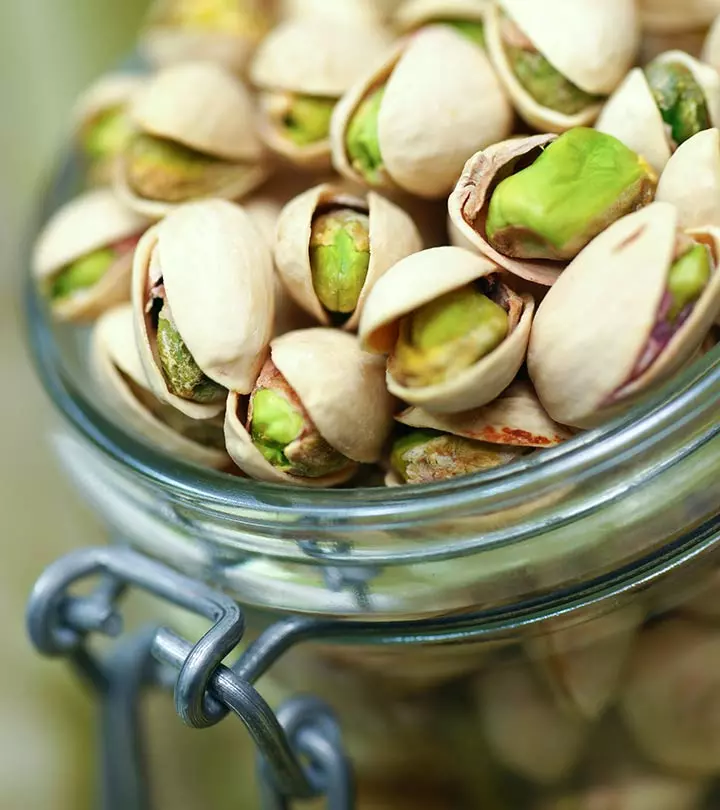

Community Experiences
Join the conversation and become a part of our empowering community! Share your stories, experiences, and insights to connect with other beauty, lifestyle, and health enthusiasts.